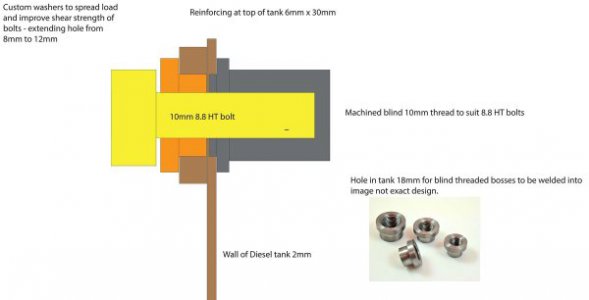- Joined
- Jun 7, 2016
- Messages
- 361
Hi Team, We are installing a 2nd diesel tank for a vehicle which is going to see long distance travel on corrugated roads.
Shear strength for the bolts (10mm 8.8 bolts are the plan) is readily available. However the impact of corrugations must certainly increase the likelihood of failure from metal fatigue or coming loose. I would assume the coming loose is a question of torquing the bolt adequately - however the shear strength is an unknown to me.
Do any of you have any insights into this question.
Here is a rough diagram of how I would install the bosses for the bolts.
Thanks in advance.
Mal
Shear strength for the bolts (10mm 8.8 bolts are the plan) is readily available. However the impact of corrugations must certainly increase the likelihood of failure from metal fatigue or coming loose. I would assume the coming loose is a question of torquing the bolt adequately - however the shear strength is an unknown to me.
Do any of you have any insights into this question.

Here is a rough diagram of how I would install the bosses for the bolts.
Thanks in advance.
Mal

